Find out more about or Stem Cell Initiative committee member's research
SCI Co-leads
- Manju Kurian
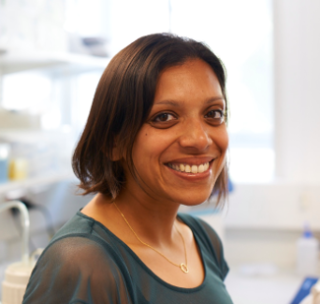
Professor Manju Kurian is a Professor of Neurogenetics and NIHR Research Professor at UCL-Great Ormond Street Institute of Child Health. She is also a Consultant Paediatric Neurologist at Great Ormond Street Hospital.
After graduating from Cambridge University, she trained in Paediatrics before subspecialising in Paediatric Neurology. At the end of her clinical training, she undertook a PhD (University of Birmingham) investigating the molecular genetic basis of childhood neurological disorders (2007-2011). She moved to UCL after her PhD, and is now an independent Principal Investigator at the Institute of Child Health.
She has been awarded a Wellcome Intermediate Fellowship (2012-2017), L’Oreal For Women in Science Award (2017), NIHR Professorship (2017-2022), ICNA Jon Stobo Award (2018) and the The Jules Thorn Award for Biomedical Research (2019-2024). Her grant income exceeds £10 million and she has >170 peer reviewed publications including works in Nature Genetics, Science, Science Translational Medicine and Lancet Neurology.Scientific Focus
Her current research encompasses gene discovery for childhood neurological disorders, including early onset epilepsy, neurodegeneration and movement disorders. Her lab uses mainly cell models to investigate the underlying pathological basis of disease. She works closely with UCL Gene Therapy groups to develop novel therapeutic strategies for children with pharmacoresistant movement disorders. Her long term goal is to translate her research for patient benefit, through improved clinical diagnosis and precision medicine approaches.
- Serena Barral
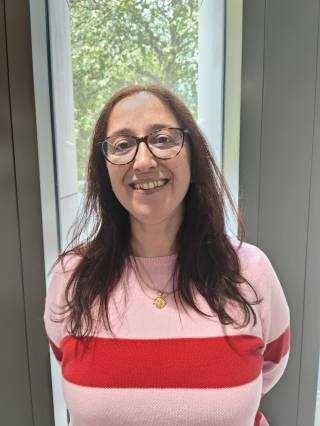
Serena started her path in neurological science by obtaining a PhD in neuroscience at the Neuroscience Doctoral School of Turin where she worked on neuronal development and neurodegeneration in animal models; and genomic mosaicism of the human brain at SCRIPPs Institute in California. She was a Marie Curie post-doc at Miltenyi Biotech Company in Germany, working with pluripotent stem cell derived dopaminergic neurons with the aim to establish new clinical translatable technology for cell transplantation in Parkinson’s. In order to keep a clinical related approach, she then moved her field of interest into modeling infantile Parkinsonism with iPSCs-derived midbrain neurons and develop in vitro models to test for therapeutic approaches at UCL GOS ICH. She has been appointed as Lecturer in Neurosciences 2019 at GOS ICH Developmental Neurosciences Program to further expand her research field in childhood-onset neurological disorders and develop novel therapies.
SCI Committee Members
- Paula Alexandre
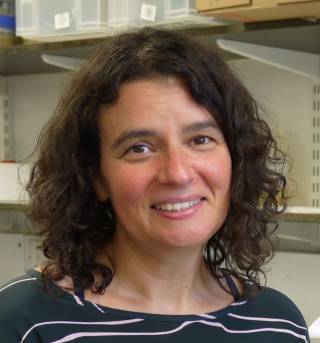
Our research aims to elucidate the underlying mechanisms that regulate cell fate decisions in the developing brain and that may be at the origin of brain disease. We combine histological and transcriptomic analysis with live-imaging of cellular behaviours in zebrafish and human embryos and 3D IPS cell culture systems.
Research profile
Alexandra lab
- Claire Duff
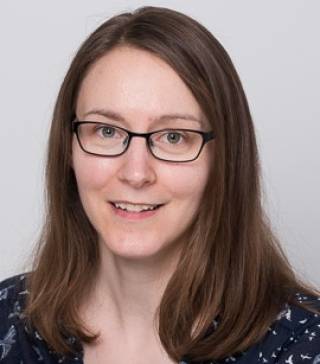
My research uses CRISPR/Cas9 and iPSCs, differentiated into cortical neurons, to investigate argininosuccinate lyase deficiency, with my particular focus being on the neurological aspect of the disease. In particular, I'm investigating how arginine metabolism modifies neuronal physiology at a cellular, synaptic and functional level.
- Patrizia Ferretti
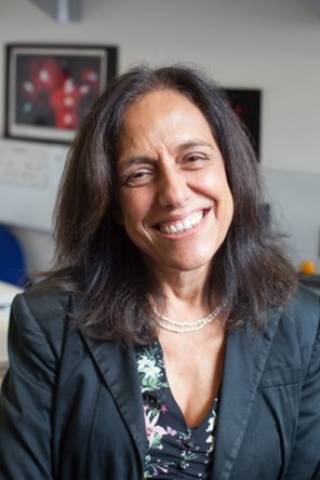
Patrizia Ferretti is Professor of Regenerative Biology at UCL (University College London). She has a long-standing interest in mechanisms governing tissue regeneration within the context of normal and abnormal development of the nervous system and craniofacial structures. Her current research focuses on the use of neural and mesenchymal human stem cells stem cells for elucidating disease mechanisms and developing cell-based therapies to repair diseased/injured tissues. She is also very interested in ethical issues concerning source and use of human stem cells. In addition to research, she is very committed to education as co-Director of a MSc in “Cell and Gene Therapy”, and of the “Stem Cells and Tissue Repair” and “Laboratory Projects” modules, and in supporting students from disadvantaged backgrounds through schemes such as in2science and as a STEM ambassador.
- Ben Jevans

I work on stem cell therapies for Hirschprung disease, a rare disease primarily affecting young children. Affected individuals are missing various amounts of the nervous system of the intestines. This leads to chronic constipation, with the vast majority of affected children eventually requiring surgery. While life-saving, complications often continue throughout life. We hope to reduce these complications by developing cell-based therapies aimed at replacing the missing nervous system.
- Alexandra Kreins
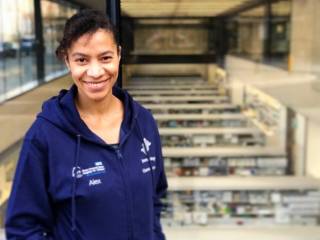
Alexandra is an Early Career Researcher and Paediatric Immunologist. She holds a Wellcome Trust Career Development Fellowship to study thymus biology and T-cell lymphopoiesis in the context of thymus transplantation for patients with congenital athymia, who are treated at Great Ormond Street Hospital (GOSH) in London, UK. Her research at UCL Great Ormond Street Institute for Child Health (ICH) is focused on improving outcomes for children with congenital athymia.
Congenital athymia causes life-threatening T-cell immunodeficiency, and the only definitive treatment is thymus transplantation. GOSH is one of two centres worldwide to offer this treatment. One of the exciting areas of translational research by the Thymus Transplantation Research Programme at GOSH and ICH is the identification and characterisation of novel inborn errors of immunity associated with profound T-cell lymphopaenia, in particular novel thymic stromal cell defects. Ex vivo differentiation of haematopoietic stem cells and iPSC-based differentiation of thymic epithelial progenitors are powerful tools for disease modelling. By gaining new insights into the biology of thymic epithelial cells and T-cell development, this unique research programme also aims to improve current treatment strategies for congenital athymia and to advance alternative approaches for thymus replacement therapy.- Jenny Lange
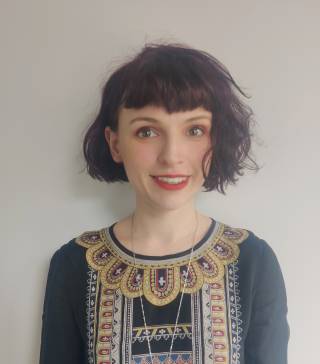
Jenny is a postdoctoral research fellow in the McTague lab where she investigates cellular mechanisms underlying rare genetic epilepsies using a number of stem cell models, including organoids. Her major research interest is the role of astrocytes and glial cells in neurological diseases of childhood, using patient derived induced pluripotent stem cells to generate human astrocytes and model diseases.
- Jinhong Meng
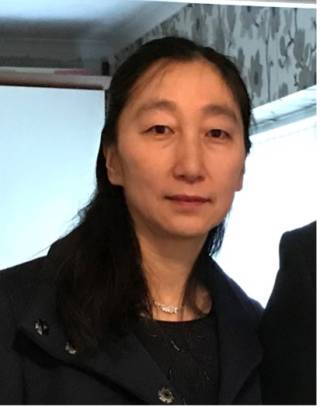
I am interested in developing novel therapies to treat genetic diseases. I have been working on combined stem cell and gene therapy for Duchenne Muscular Dystrophy (DMD), using either somatic stem cells or human induced pluripotent stem cell derived myo-progenitor cells. This ex vivo approach involved the use of lentiviral vector as a tool for deliver the gene of interest to the cells, and the immune-deficient animal models as the recipient mice to evaluate the efficiency and the feasibility of the approach. I am also working on developing RNA therapy strategies for treating other genetic disorders such as SPTLC1-related Hereditary Sensory Neuropathy 1A (HSN1A) and FAH deficiency induced Hereditary Tyrosinemia Type I (HTI), using antisense oligonucleotides (AONs), SiRNA or ADAR-mediated RNA editing.
- Haiyan Zhou
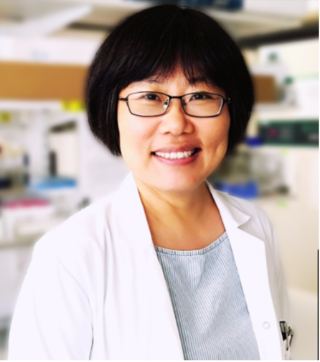
Dr. Haiyan Zhou (ICH) is an Associate Professor in RNA therapy and UK Harrington Rare Disease Scholar. She serves as the deputy theme lead for the NIHR GOSH BRC Advancing Novel Therapies Theme, the UCL Personalized Medicine and Novel Therapies MSc Programme director, and the director of the MRC Nucleic Acid Therapies Rare Disease Node (UPNAT).
Dr. Zhou has been at the forefront of groundbreaking preclinical developments in RNA-based therapeutics. At the heart of her research lies a focus on developing novel RNA therapy for various genetic disorders, and translating these innovative therapies into clinical trials, using state-of-the-art nucleic acid technology alongside cutting-edge model systems like iPSCs and organoids. Collaborating with research groups at the UCL GOS-ICH Stem Cell Initiative, her team is committed to advancing the frontiers of personalized medicine and novel therapies.
 Close
Close

